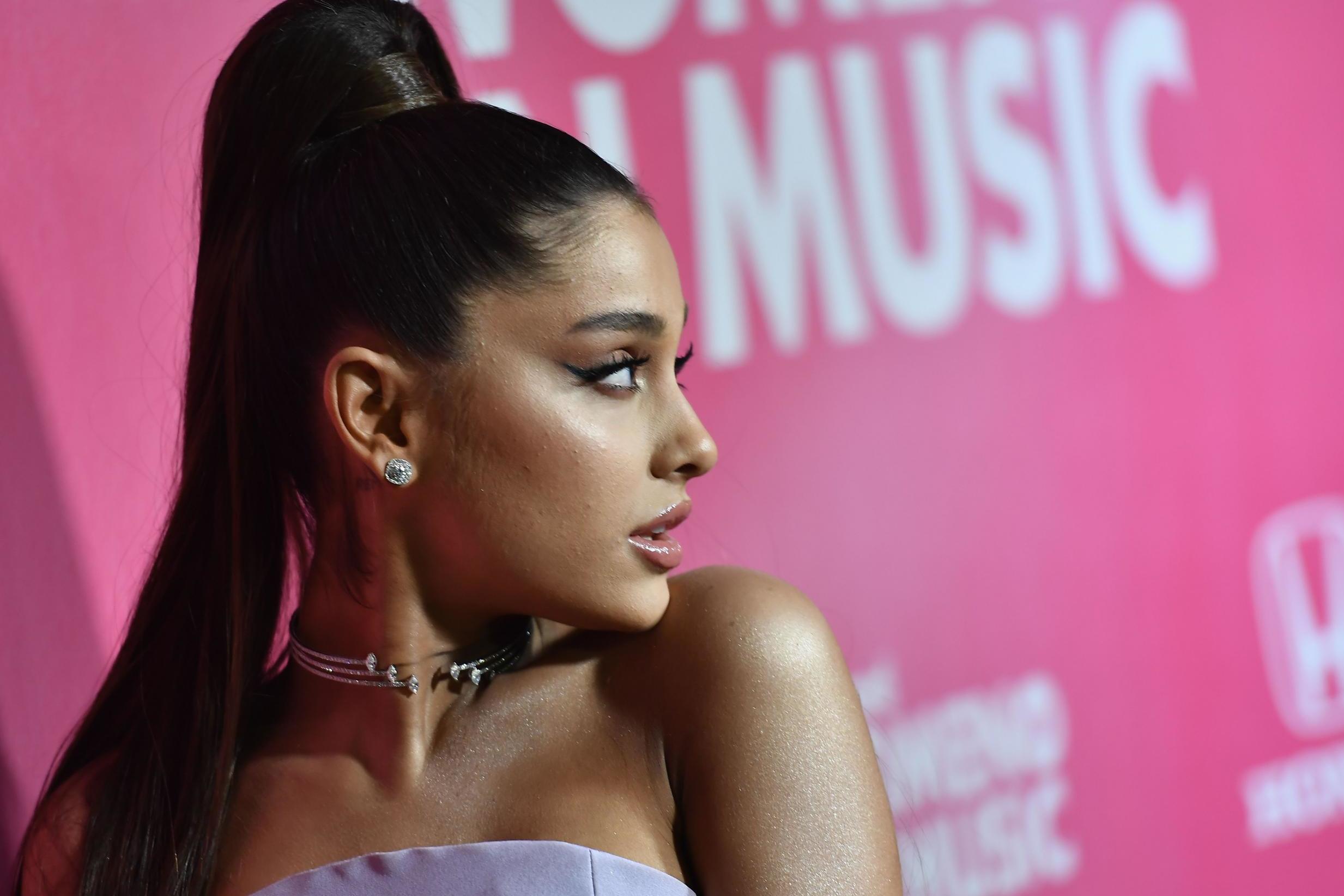Attacking Ariana Grande for headlining Manchester Pride is ridiculous. The LGBT+ community need allies like her
I can’t shake the feeling that Grande’s detractors are cutting off their noses to spite their faces


Ariana Grande has responded publicly after facing criticism for accepting an offer to headline Manchester Pride later this year. Posting a screenshot from the iPhone Notes app, Grande said she “wanted to chime in” after seeing “many people” discussing the issue.
Even before Grande was officially announced as a headliner, Manchester Pride faced accusations that sky-high ticket prices were likely to make the event less inclusive. Firstly, Grande addressed the ticket prices for Manchester Pride, saying they are not in her control.
Addressing criticism that a heterosexual artist should not be headlining an LGBT+-focussed event, Grande said she wanted to “celebrate” a community that had been “so special to me and supportive throughout my entire career ... regardless of my identity or how people label me”. She highlighted that other “straight allies” such as Kylie Minogue and Cher have performed at such events before.
Tensions over Grande’s headlining slot represent an intersection of a number of contentious debates within the LGBT+ community about what Pride should be. To me, Pride is both a celebration of progress and a defiant protest against discrimination and injustice which continue to disproportionately impact the LGBT+ community worldwide.
Pride represents something different to everyone, depending on their own experience and identity. Equality is, ultimately, about the freedom for LGBT+ individuals to make their own choices. One of those choices is how you choose to view Pride, or if you choose to participate at all.
The first Pride London, in 1972, was made up of a few hundred people with homemade signs chanting slogans as they marched through London. But today’s Prides are almost unrecognisable. Events have become gradually more commercial, with corporate sponsors and flashy, high-budget concerts. This has, quite rightly in some cases, made people uneasy. Last year, British Airways came under fire for sponsoring Pride but continuing to cooperate with the Home Office in the deportation of LGBT+ asylum seekers.
The culture war over Pride has led many to question whether the gatekeepers of the community truly have the interests of all LGBT+ people at heart. Escalating ticket prices and accusations of lack of diversity against London Pride, which saw LGBT+ charity Stonewall sever ties last year, have validated this distrust.
As Pride events have expanded, the place of straight people like Grande within these spaces has become another key debate: if Pride is for LGBT+ people, then why are larger Prides always full of straight people?
It’s certainly true that the behaviour of some straight people at Pride events can be unacceptable. At Brighton Pride last year, I saw a group of heterosexual men embroiled in a huge drunken fight, kicking, punching and swearing at each other. This is the exact type of behaviour that LGBT+ people, too frequently the targets of hostility in the wider world, are hoping to avoid at Pride.
Straight people at Pride need to be mindful that, when entering the space, they are a guest. Pride isn’t about straight people – it’s about uplifting LGBT+ people. If you don’t show solidarity with LGBT+ people throughout the year, Pride probably isn’t the place for you. Large groups of straight people can also be jarring too. If you don’t have a single LGBT+ friend, colleague or family member to tag along with, should you really be there?
The concept of a straight “ally” is clunky and awkward. What are the qualifications of being an ally? Do we really need them? The answer to the first question remains unclear. For example, people were angry when TV presenter Susanna Reid was nominated for a “straight ally” award at the British LGBT Awards, despite co-hosting Good Morning Britain with Piers Morgan, who has frequently targeted the trans community.
Yet the answer as to whether we need straight allies is far easier: yes, of course we do. LGBT+ people all over the world deserve credit for fighting for their rights. But the fact is that we wouldn’t have won these freedoms without help from straight people. Even now, despite so much progress, it would be foolish to assume we don’t need straight people in our corner, particularly as the tectonic plates of global politics shift and far-right voices continue to rise.
Figures from popular-culture have helped enormously with normalising the LGBT+ community over the years. Madonna, for instance, included a leaflet, The Facts About AIDS, with her 1989 album Like a Prayer. Kylie Minogue, who will headline Brighton Pride later this year, has been an outspoken ally to the community for decades.
With regards to Grande, her half-brother Frankie is openly gay and, while having a gay relative or friend doesn’t necessarily make anyone an ally, Grande has long been a vocal advocate for the LGBT+ community. Last year, she even wrote a “love letter” to the community for Billboard.
To LGBT+ people across the globe living in one of the over 70 countries which criminalise homosexuality, seeing one of the world’s biggest pop stars performing at a Pride event is still radical. Returning to the city where terrorists stole the lives of 22 of her fans just two years ago, including gay men like Martyn Hett, will undoubtedly be a powerful, healing moment for Grande and her LGBT+ fans.

In terms of Manchester Pride, LGBT+ acts including Years & Years – whose gay frontman Olly Alexander tweeted in support of Grande – will also be performing. Bisexual singer Rita Ora headlined Manchester last year, so it is clear that LGBT+ musicians are not being locked out of these events.
Acknowledging that she is not claiming to be “the hero of the community or the face of the LGBT+ rights movement”, Grande’s response indicates an understanding that, even as a headliner, she is a guest in a safe space.
Complaints about Grande’s headlining slot clearly indicate a growing discontent with the commercialisation – and, by extension, the heterosexualisation and depoliticisation – of western Pride movements.
While there are legitimate debates to be had about this, which I actively encourage, on this occasion the outrage is misplaced. Try as I might, I can’t shake the feeling that Grande’s detractors are cutting off their noses to spite their faces.
Grande is an LGBT+ icon and a fierce, genuinely invested ally. In my view, she is more than welcome to celebrate with us. After all, without performers like her – who’ve stood up for us over the years even when it was difficult – where would our community be now?
Join our commenting forum
Join thought-provoking conversations, follow other Independent readers and see their replies
Comments
Bookmark popover
Removed from bookmarks